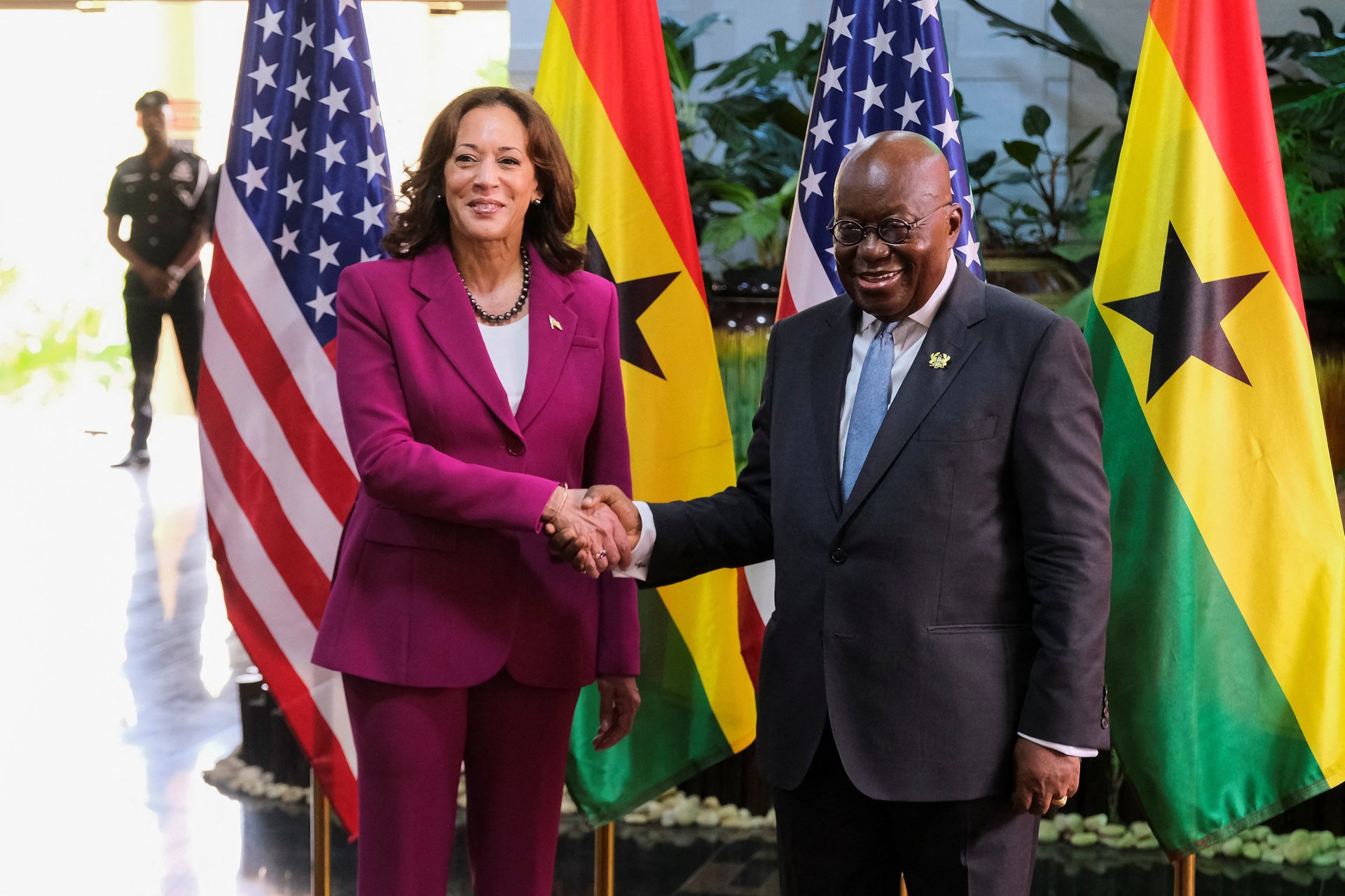The US is on a charm offensive in Africa to counter Russia and China
Top Biden administration dignitaries have been visiting nations in the continent

On March 26, US vice-president Kamala Harris landed in Accra, Ghana, kicking off a week-long trip to three African countries, including Tanzania and Zambia. The visit, she said, cements a “very important relationship” and aims to deepen ties.
Two months earlier, US first lady Jill Biden visited Namibia and Kenya on a similar mission. Starting March 15, US secretary of state Antony Blinken visited Ethiopia and Niger. Last August, he was in South Africa, the Democratic Republic of Congo, and Rwanda.
This enthusiasm for Africa is vastly different from the approach of former president Donald Trump who, in 2018, labelled it “a shithole.” Besides, it comes amid aggressive competition for the continent’s resources from both Russia and China.
Africa, therefore, is basking in the attention of three global superpowers now.
Russia and China are wooing Africa
Russia and China have never been coy about their interests. They have pounced on every opportunity Africa offers, aiding infrastructure development and providing military supplies to nations while tapping their resources.
For instance, in 2019, Beijing and Accra signed a $2 billion infrastructure deal in exchange for China’s access to the bauxite reserves in southeastern Ghana.
Russia, on its part, has been militarily involved through private companies. Foreign minister Sergei Lavrov visited South Africa, Angola, and Eswatini in January seeking a firmer grip on their security and energy sectors.
Moscow is also helping African governments counter insurgencies and terrorist insurrections. This has also been viewed as a strategy to safeguard its interest in diamond mines through the Wagner Group. Its trade with Africa stood at $15.6 billion in 2021.
Besides its immense store of natural resources, Africa is being wooed by powerful nations for its growing youthful population, too—the median age there is 19 years.
The US doesn’t want to be left behind. But its trade with Africa totalled $83.6 billion in 2021, a fraction of China’s $254 billion in the same year.
Top US government officials are leading the chase
President Biden has promised to visit Africa this year. “The United States is all in on Africa and all in with Africa,” he said, last December. “Africa belongs at the table in every room.”
Biden was speaking at the US-Africa leaders’ summit in Washington where he also announced around $15 billion in two-way trade with Africa. The meet passed a host of resolutions to plug Africa’s $100 billion infrastructure gap.
At the same time, the world’s most powerful economy has also rolled out a policy to counter Chinese and Russian presence in sub-Saharan Africa. The policy states that China has been challenging “the rules-based international order,” and has been using Africa to “advance its own narrow commercial and geopolitical interests, undermine transparency and openness, and weaken US relations with African peoples and governments.”
It also states that Moscow “uses its security and economic ties, as well as disinformation to undercut Africans’ principled opposition to Russia’s further invasion of Ukraine and related human rights abuses.”
In January, treasury secretary Janet Yellen visited Senegal, Zambia, and South Africa. Sounding resentful about the billions of dollars of loans China is pouring into the continent, Yellen asked African nations to “be careful” as they can be “opaque and ultimately fail to help the people they were meant to help.”
A great game is clearly unfolding in the booming continent.
